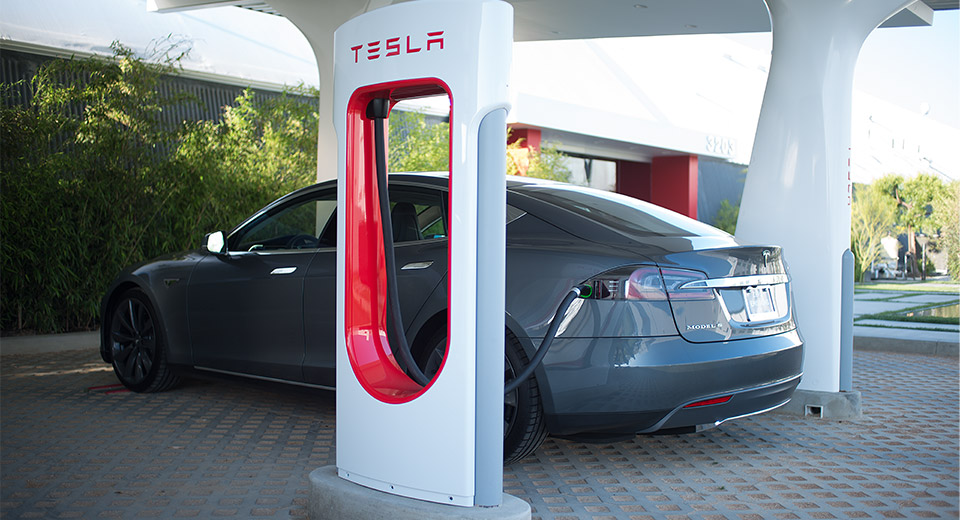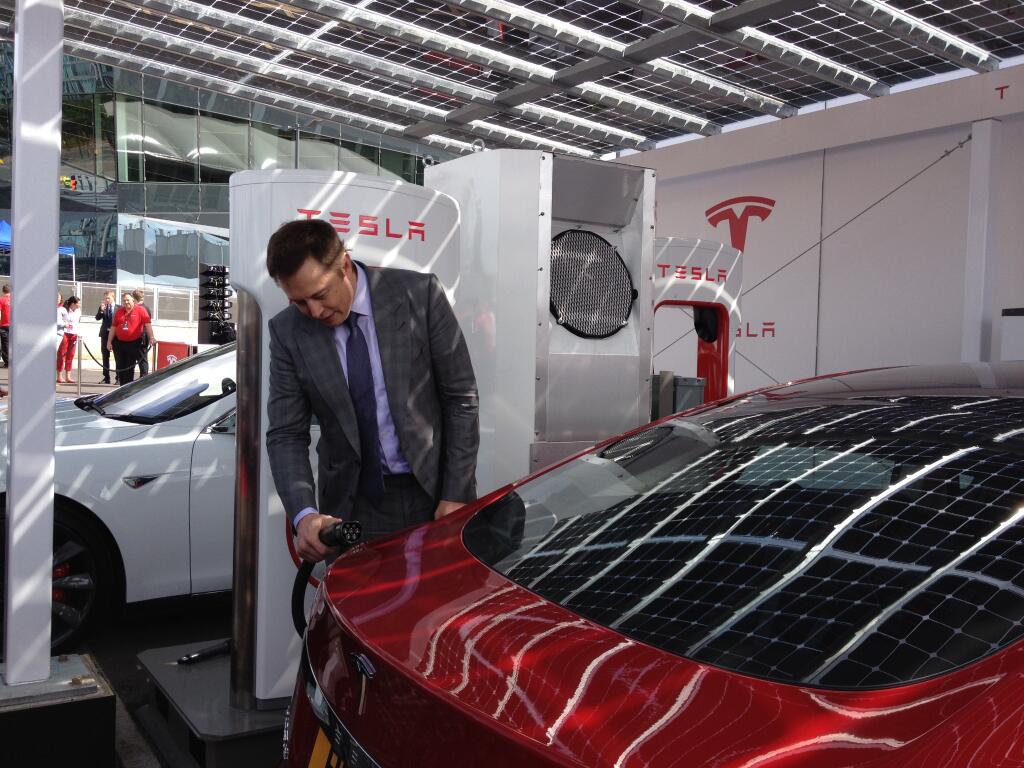IMHO, many people are reading too much into too little data. AFAIK, all that's publicly known are four things:
- What's happening in Europe -- Tesla, under pressure from some European nations, is opening its Supercharger network in Europe to non-Tesla vehicles. Even the details of what this means are unclear, though. Also, Europe, including Tesla, has pretty much standardized on CCS2.
- US compatibility -- Currently, Tesla Superchargers are not physically compatible with non-Tesla EVs in North America. This is a critical difference between Europe and North America.
- Elon Musk's tweets -- Musk has recently made two extremely vague tweets that are relevant. The first read "that said, we’re making our Supercharger network open to other EVs later this year" and the second read "over time, all countries." That second tweet is often de-emphasized in discussions, but it's a caveat that's likely to be very important.
- Elon Time -- Musk has a history of making public statements about timelines that are, shall we say, optimistic. Some Musk pronouncements have come to nothing at all. (Remember "funding secured?")
The way I see it, Musk probably meant that some or all
European Superchargers would be opened to non-Tesla EVs this year. (Whether this timeline will be met is another matter -- see "Elon Time" point above.) Musk's "over time" comment (how much time?) suggests a later opening of Superchargers to non-Tesla EVs. That is, in combination, I interpret Musk as saying that Superchargers in
some areas (likely part or all of Europe) will be opened this year, with other continents to follow later. Note also that Musk didn't specify
which EVs would be able to use Superchargers, particularly in the US market, which is where most people in this thread are located. As I see it, there are three ways that Tesla could open up the Supercharger network to non-Tesla EVs in North America:
- Partnerships with Tesla connectors on cars -- There are reports that Aptera is using the Tesla charging connector, at least on prototype vehicles. A deal to give Aptera vehicles access to Superchargers would be sufficient to satisfy the truth value of Musk's two tweets, noted above, for the North American market. This would have minimal impact on Supercharger use. Superchargers would not be flooded with Chevy Bolts or Ford Mustang Mach-Es, and buyers like @No_ICE would have no change in incentive compared to the world of a week ago, since nothing will have changed for them. Similar deals could theoretically happen with other automakers, but I know of no evidence that any such deals are in the works.
- Sale of adapters -- Tesla could sell (or license others to sell) Tesla-to-CCS1 and/or Tesla-to-CHAdeMO adapters, thus enabling drivers of non-Tesla EVs to use Superchargers. Given the price of adapters that go the other way, such adapters would likely cost $400-$600, so I doubt if there'd be a mad rush of non-Tesla EV owners to buy them, although of course some would. There might also be charging-speed limitations.
- Addition of CCS1 support to Superchargers -- Similar to what Tesla has done in Europe, they could add CCS1 plugs to existing or new Superchargers in the US. This approach would have the greatest potential to bring in non-Tesla vehicles to charge at Supercharger stations. It could also be part of a plan to transition Tesla vehicles onto CCS1 in North America. (I have no evidence that such a plan exists; but if Tesla did plan to transition their cars to use CCS1, they'd need to add CCS1 plugs to Superchargers at some point anyhow.) Note, however, that even if Tesla did add CCS1 plugs to Superchargers, there's no guarantee that all cars would be supported. Tesla might only support cars with Plug-and-Charge capabilities, for instance. There could be similar plans with CHAdeMO, too; but if not, Nissan Leafs and other CHAdeMO-using vehicles would not gain access to Superchargers.
If Tesla has been working on any of these approaches, they could make an official announcement tomorrow; but it could also be months or years before anything comes to fruition. Depending on which --
if any ("funding secured") -- of these things happens, impact on Tesla owners, and benefits to non-Tesla owners, could be minimal.
Also remember that, if non-Tesla access to Superchargers happens, that access will also mean more revenue for Tesla, which will help them to build out the Supercharger network. Thus, although there may be temporary problems caused by increased demand at some stations or at some times, in the long run I doubt if there will be any significant problems for existing Tesla owners. Should Tesla decide to transition its cars to CCS1, then over time capacity issues at busy Superchargers might be reduced, since CCS1-capable Teslas could fast charge at non-Tesla DC fast charger locations.
Anybody who's followed Tesla knows that Teslaworld is chaotic. Elon Musk creates chaos with his tweets, Tesla changes pricing and options as often as many people change their socks, Tesla's growth as a company creates growing pains, the EV industry in general is volatile, etc. This chaos is part of the price of owning a Tesla -- or in some cases of
not buying a Tesla. Right now we have very little information on what Tesla is planning with respect to Supercharger support for non-Teslas in North America, which creates a sort of self-created FUD problem for Tesla. "Wait and see" may be a worthwhile attitude for people like
@No_ICE who want to buy an EV; however, if Tesla clarifies its plans in a month or two, another issue may arise at that time to create another "wait and see" period. Sooner or later, we consumers just have to make a decision, knowing that we have incomplete information. That's
always the case -- it's just more so whenever Tesla is involved.




